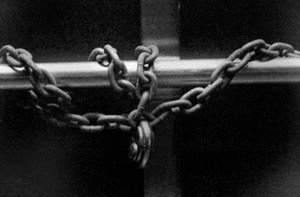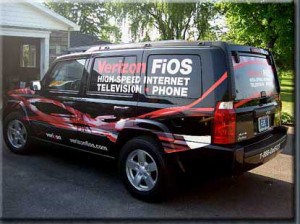 The nation’s largest broadband stimulus grant recipient has turned a $126.3 million taxpayer funded broadband expansion program into an “orchestrated train wreck,” charged West Virginia Delegate Nancy Guthrie (D-Kanawha) on Monday.
The nation’s largest broadband stimulus grant recipient has turned a $126.3 million taxpayer funded broadband expansion program into an “orchestrated train wreck,” charged West Virginia Delegate Nancy Guthrie (D-Kanawha) on Monday.
West Virginia Homeland Security Director Jimmy Gianato defended his management of the project before a joint state House-Senate technology committee just learning it had been scaled back, dropping more than 400 sites that were slated to have fiber broadband upgrades Gianato claimed they already had.
Gianato defended the project, noting the original grant proposal was held up by the Commerce Secretary as one of the best-written proposals in the country.
Lawmakers did not criticize how the proposal was written. Instead, they questioned how the project was administered and how the money was spent.
“We’ve done everything the grant said we would do,” Gianato countered.
Many of the questions surrounded the decision to purchase 1,064 Cisco routers in 2010, which cost taxpayers $22,600 each, and were rejected by more than a few intended recipients. Several hundred routers ended up in storage, unused.
Still murky is why project managers only considered a single, expensive Cisco-brand router recommended by Verizon-employed consultants and ultimately purchased directly from Verizon.

Guthrie
Gianato claimed the federal government tied his hands requiring West Virginia’s broadband project be “shovel-ready.”
“All of the equipment was bought off contracts that had been competitively bid,” he told the conference.
But project managers and consultants can custom-tailor specifications that make it impossible for vendors to specify anything other than the Cisco router Verizon conveniently happened to sell.
Several members appeared unmoved by statements defending the decision to deploy identical, expensive routers to every West Virginia anchor institution, despite the fact they were designed to serve a minimum of 500 concurrent users and often ended up in rural community libraries with less than five public terminals.
Gale Given, the state’s chief technology officer, supported Gianato.
“The team determined that capacity should be provided to permit these community anchor institutions to deploy the applications that were required to meet future needs, not their current needs,” Given wrote in a letter to state lawmakers. “It would be a mistake to determine in advance that entities with low bandwidth requirements today will not have high bandwidth requirements in the future. To have shortchanged our smaller, more rural areas would have gone against the entire intent of the program.”
But now West Virginia taxpayers will be on the hook to cover the costs of making the new equipment compatible with existing equipment in certain state facilities.
At least 70 State Police detachments will begin using the once-rejected routers once the state spends $90,000 for new modules to update the agency’s voicemail system, which is not compatible with the routers.
State libraries also won a break from Frontier Communications, who agreed to supply fiber broadband service to 170 mostly small, rural libraries that could not afford the fiber upgrade. Frontier has agreed to supply the fiber service for the same price libraries pay for their existing service.


 Subscribe
Subscribe



 While a lot of people would love to get Verizon to wire their communities for the company’s fiber optic network, at least three New York City multi-dwelling unit property owners have told Verizon to get lost, in some cases telling the company none of their tenants were interested in the top-rated fiber to the home network, even as they remain without phone service three months after Hurricane Sandy damaged Verizon’s facilities in the city.
While a lot of people would love to get Verizon to wire their communities for the company’s fiber optic network, at least three New York City multi-dwelling unit property owners have told Verizon to get lost, in some cases telling the company none of their tenants were interested in the top-rated fiber to the home network, even as they remain without phone service three months after Hurricane Sandy damaged Verizon’s facilities in the city. boneheads that own my building that nobody was interested,” says Brad, a Stop the Cap! reader in Manhattan. “The morons at the property management company don’t have a clue or they want money from Verizon in return for the keys. Meanwhile, there is no dial tone and Verizon says they are at an impasse until the property owners, who obviously don’t care, let them in to do repairs.”
boneheads that own my building that nobody was interested,” says Brad, a Stop the Cap! reader in Manhattan. “The morons at the property management company don’t have a clue or they want money from Verizon in return for the keys. Meanwhile, there is no dial tone and Verizon says they are at an impasse until the property owners, who obviously don’t care, let them in to do repairs.”

